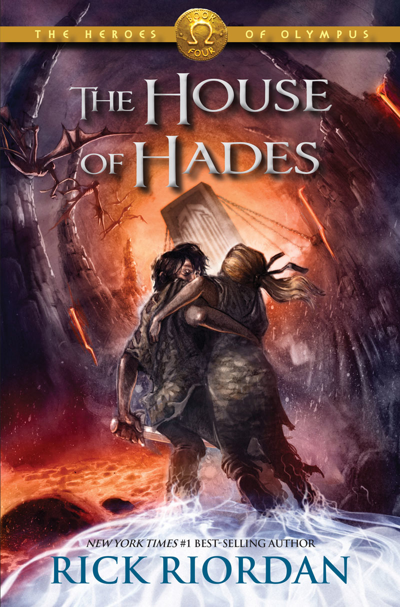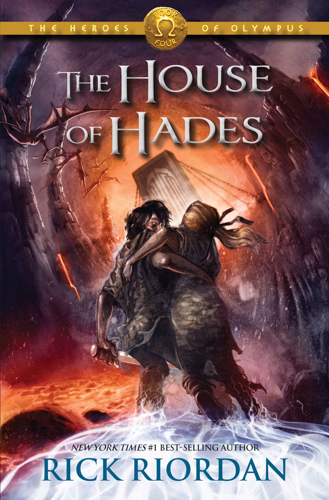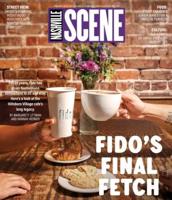It's no walk in the park being a demigod — someone with one mortal parent and one who's a god or goddess. Most immortal parents are mysterious and inaccessible, not to mention downright dangerous, even to their own children. And despite their superhuman abilities, children's-book hero Percy Jackson and his friends never know what is coming at them next. More than likely, it's something nasty: vicious trolls, mad water nymphs, an enormous spider or bloodthirsty giants, to name only a few previous difficulties. Whatever the next challenge, it's certain that devoted readers of Rick Riordan's Heroes of Olympus series will gladly follow these teen heroes to Hades and beyond. Prior to his appearance at the Southern Festival of Books, Riordan recently answered questions by email.
You excel at creating complicated and recognizable young characters who have typical teen insecurities and doubts about themselves despite being demigods. Was there anything in particular about your own youth or your children's — or about your years of teaching — that prepared you to write such well-rounded characters?
I try to imagine my characters as students in my own classroom. I taught for many years, so I guess it isn't that difficult for me to craft young characters with both strengths and weaknesses. Whenever I write a story, I draw on my teaching experience and envision reading each book aloud to a bunch of middle-schoolers. That keeps me on my toes because young readers are a tough audience. They want humor. They want a strong story. But most of all they want characters who feel real, who are going through things that seem relevant to the reader — even if the book is a fantasy.
Despite the proliferation of ancient gods and goddesses throughout your books, you also sprinkle ironic or whimsical nods to modern culture within their pages — imagining Amazon.com run by actual Amazons, for example. Do younger readers appreciate this kind of humor, or do you include such references more for your own amusement and that of your many adult fans?
Of course I try to entertain myself, but it's really all about the kids. I think they find such things funny. Kids are pretty savvy observers of modern culture. They see more than adults give them credit for. When I think about humor in my books, I always think about the Bugs Bunny cartoons I enjoyed as a kid. Those cartoons had some very sophisticated humor, with plenty of references to contemporary culture, and yet there was no worry about the material going over kids' heads.
In another touch of whimsy, a character in The Mark of Athena complains about the bound book, preferring the "elegant feel" of the traditional scroll and its "smell of sheepskin." Despite any such reservations you may have yourself about changing technology, you recently released an e-book short that has spent weeks on the Children's Middle Grade Best Sellers list at The New York Times. What is your take on the role of e-books in literary culture, especially the young-adult genre?
I am not precious about physical books. I enjoy reading electronically and read about 90 percent of books on an e-reader now. I like physical books, too, sure. Especially for young readers, I think that will be the most accessible option for years to come, but I am not one to bemoan the death of the printed book, any more than I miss my old typewriter from high school.
You have more than 88,000 followers on Facebook and more than 176,000 on Twitter (@camphalfblood). You also have a popular blog, Myth and Mystery. Do you see this kind of engagement with social media as crucial for contemporary authors, or is it just something you personally enjoy?
I do think it's critical for authors to have an online presence. Authors have always had the burden of being their own marketing directors. With the online world, that's even more crucial. If you don't have a website, a social-media account or some sort of online identity, you basically don't exist, especially for young readers. Having said that, I keep up with social media because it's fun for me.
To read an uncut version of this interview — and more local book coverage — please visit Chapter16.org, an online publication of Humanities Tennessee.
Email arts@nashvillescene.com.






